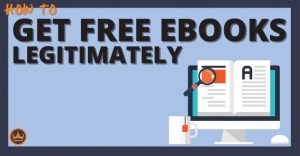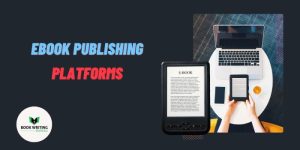Dive into the clash between E-books and printed books, where digital meets traditional in a showdown of words and pages. Get ready for a literary face-off like no other!
Are you team E-books or team printed books? Let’s explore the pros and cons of each in this epic battle of reading formats.
E-books vs Printed Books

In today’s digital age, the debate between e-books and printed books continues to spark discussions among readers. Let’s delve into the key differences between these two formats and explore their impact on the environment, cost, storage, portability, and reading experience.
Environmental Impact
When comparing e-books and printed books in terms of environmental impact, e-books come out as the more eco-friendly option. E-books eliminate the need for paper production, reducing deforestation and carbon emissions associated with the printing process. However, the production and disposal of e-readers contribute to electronic waste, which poses its own environmental challenges.
Cost Difference
Purchasing e-books is often more cost-effective than buying printed books. E-books are usually priced lower than their printed counterparts, and readers can access a wide range of e-books for free or through subscription services. Additionally, e-books eliminate expenses related to printing, shipping, and storage, making them a budget-friendly choice for avid readers.
Storage and Portability
One of the advantages of e-books is their convenience when it comes to storage and portability. A single e-reader can hold thousands of e-books, saving physical space in your home. On the other hand, printed books require shelf space and can be heavy to carry around. E-books allow readers to take their entire library with them wherever they go, making reading on-the-go hassle-free.
Reading Experience
E-books offer a different reading experience compared to printed books, thanks to digital features such as adjustable font sizes, search functions, and built-in dictionaries. While some readers enjoy the convenience of e-books, others prefer the tactile feel and nostalgic charm of printed books. The traditional experience of flipping through pages and the scent of ink on paper add a unique touch to the reading process that e-books cannot replicate.
E-BOOKS
E-books offer a wide range of benefits, especially in terms of accessibility, interactive features, convenience, and variety in genres.E-books are particularly advantageous for people with disabilities, as they provide various accessibility features that cater to different needs. Features like adjustable font sizes, screen readers, and text-to-speech capabilities make it easier for individuals with visual impairments or learning disabilities to access and enjoy reading content.
Accessibility Benefits for People with Disabilities
- Adjustable font sizes for better readability
- Screen readers for visually impaired individuals
- Text-to-speech capabilities for those with reading disabilities
E-books also offer interactive features that enhance the reading experience. Features like hyperlinks, multimedia content, embedded videos, and interactive quizzes engage readers in a way that traditional printed books cannot.
Interactive Features in E-books
- Hyperlinks for quick access to additional information
- Multimedia content for a more engaging experience
- Embedded videos and interactive quizzes for interactive learning
The convenience of purchasing and downloading e-books instantly is another significant advantage. With just a few clicks, readers can access a vast library of e-books from anywhere in the world, eliminating the need to visit physical bookstores or wait for shipping.
Convenience of Purchasing and Downloading E-books Instantly
- Instant access to a wide variety of e-books
- No need to visit physical bookstores or wait for shipping
- Ability to download e-books on multiple devices for on-the-go reading
Furthermore, e-books offer a diverse range of genres and titles, ensuring that readers can find content that caters to their specific interests and preferences. From fiction to non-fiction, self-help to science fiction, e-books cover a broad spectrum of genres, making it easy for readers to discover new authors and explore different literary worlds.
Variety and Availability of Genres in E-book Formats
- Diverse range of genres and titles to choose from
- Opportunity to discover new authors and literary works
- Availability of e-books in different languages for global readership
Ending Remarks

As we close the chapter on E-books vs printed books, remember that the best format is the one that speaks to your heart. Whether you prefer the crisp pages of a physical book or the convenience of an E-book, the most important thing is to keep reading and enjoying the magic of storytelling.
FAQ
Which is more environmentally friendly, E-books or printed books?
E-books have a lower environmental impact compared to printed books, as they don’t require paper or ink for production.
Are E-books cheaper than printed books?
In general, E-books tend to be more cost-effective than printed books, especially considering factors like storage and production costs.
Do E-books offer the same reading experience as printed books?
While E-books provide digital features like adjustable fonts and instant dictionary lookups, some readers still prefer the tactile feel of a physical book.




